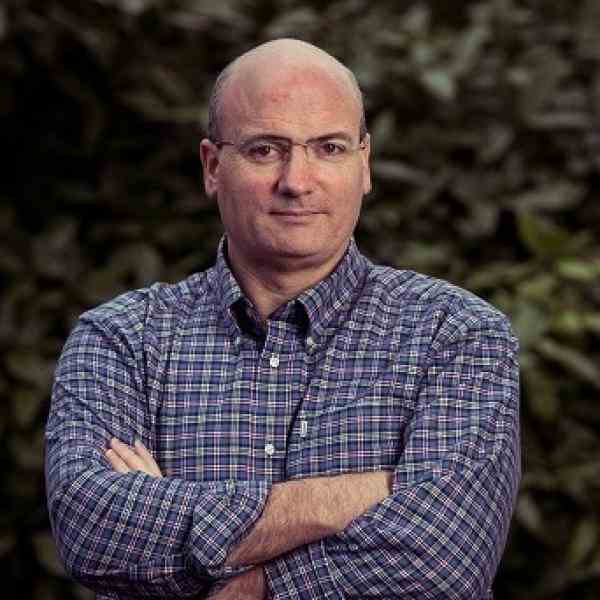Introduction
Mike is creating an initiative to serve as the global source for online education at a time when community college is an underfunded and underdeveloped educational resource. His free form of online community college offers everything from computer courses to English classes, and opens up employment opportunities for users. His new approach to skills training is designed around a system of alternative certification and immediate competence testing, with programs adapted to stay within relevant copyright laws. Quality control is secured through the use of adapted curriculum, stringent peer review, and a strong international volunteer base. To add validity to his training offers and create accountability, Mike provides services to employers, who can immediately test the skill level of potential hires through “flash tests.” Begun in 2007, Mike’s program has nearly half a million registered users from around the world, and is expanding offerings to mobile platforms, secondary school curriculum and beyond.
The New Idea
Top quality, peer-reviewed online education and skills training can be provided for free. Mike’s ALISON program offers free resources to “up-skilling” workers in everything from English to IT competency online. His work breaks down the barriers of expensive curriculum and limited access to educational resources, and offers verified, quality controlled tools with teacher groups, forums, and testing functions—built on a sustainable, self-funding business model.
Mike’s work with ALISON focuses on competence rather than credential. It offers “generic” versions of well-known certificate programs such as the European Computer Driving License. Quality reputation is bolstered through “flash tests,” quick 30-question overviews of course material which students, teachers, and potential employers can use to gauge current mastery and gain alternative certification—similar to the typing tests of a past era.
Community college is an underfunded and underdeveloped educational resource—Mike is offering the first freely accessible online community college, rather than an online university. There are many resources that offer free trials to computer literacy and other training programs, but Mike’s alternative credential model is unique in that it offers a completely free full set of tutorials and fully-fleshed curricula created partially through open source methods, peer-reviewed to offer a markedly high level of quality.
The Problem
Online training is prohibitively expensive—there are a few growing online university initiatives that offer college-level curricula, yet they lack assessment tools. There is little on offer in terms of more basic training coursework free of charge, and thus little recourse for people hoping to advance themselves in their chosen field, but without the economic means to pay for expensive trainings. “Free” trainings available online almost entirely consist of samples of courses offered to entice individuals to buy the full course. Continuing education around the increasingly important skill of computer literacy, and gaining the credentials that can decide the difference between a job offer and a rejection letter, are outside the reach of many people who need them most. For example, CISCO certification, the “gold standard” for computer network programming, charges a rate of US$3,000, and the European Computer Driving License certification, a basic requirement for any IT job in Europe (and in many other areas) costs roughly US$750. Cost of certification tends to make up two-thirds of the total cost for these education programs. These high costs make training difficult or impossible for prospective workers in the developing world, the unemployed with little disposable income, and small business owners who cannot afford to train their workers to be competitive.
Education is a US$1.4T industry worldwide; however, the industry suffers from significant reinvention of the wheel and duplication of efforts. For-profit universities, which can comprise a US$6B market, prey on students looking to advance, but end up buried in debt for a non-accredited certificate. Whereas in community college, 50 percent of students fail out, and many take six years or more to complete a two-year associates degree.
While there are few systems of measurement and accountability for e-learning and online education, open source options—whether software or courses or otherwise—can lack quality control among the multiple providers. Employers depend on well-known, but expensive, certification schemes such as the European Computer Driving License because their quality is vetted. Online courses and free options for courses with few systems for quality control do not offer the same immediate name recognition or credibility. Also, a certification offers a record of demonstrated past competence in a particular skill—whether English or computers or otherwise—but offers little method for employers to check prospective employees’ current competence. The gap in e-learning and online education opens a huge opportunity for new innovations that provide low-cost, accessible, quality training.
The Strategy
Mike is aggregating high-quality, peer-reviewed content to make workplace skills training—and beyond—freely available to everyone. He is creating a new knowledge business to offer low-barrier access to an individualized skills education, and tearing down the boundaries erected by underfunded and low quality community colleges. Founded in April 2007, ALISON recently registered its 400,000 learner. Mike’s larger vision is to become the world’s largest learning site, with the deliverable of providing quality interactive multimedia education to anyone in any certifiable subject.
Mike has structured ALISON to be an arbiter of quality for skills training courses. To combat the prohibitive cost of many training/credential programs, Mike and ALISON are creating free, open source versions of respected programs, adapting them to stay within relevant copyright laws. For example, ALISON’s IT literacy offerings (the most popular ALISON course), ABC-IT, is adapted from the European Computer Driving License, and the English language program (the second most popular ALISON course) is drawn from the British Council curriculum. Many of the other courses are designed by the ALISON team or outside experts. Mike stresses that his work is by no means “the YouTube of e-learning,” a free-for-all of self-created options with no vetting. Quality control, which is often difficult to ensure with online options, is secured through his use of adapted curriculum, a team of educators, and a strong international volunteer base. For example, Mike recently bought an interactive high school curriculum from the Australian government, and is working to make it available as a next step.
To supplement his adapted curriculum and other offerings, Mike has created an “alternative” certification function as well as competence tests for employer use. Users who have successfully completed a course can download a certificate, and Mike is working to integrate his programs into the accepted and recognized set of options—for example, the Board of Education in South Africa has accredited his ABC-IT as a recognized computer literacy training certification nationwide. To add validity to his training offers and create accountability, Mike provides services to employers, who can immediately test the skill level of potential hires through “flash tests,” which, similar to traditional secretarial typing tests, allow immediate measure of skill level at job interviews through a quick test of 30 random questions. Rather than relying on a TOEFL certificate earned many years previous, an employer can ask a candidate to take a quick aptitude test to check true competence and current understanding.
Mike has built these options to be especially useful for smaller businesses, believing that traditional training approaches impact businesses negatively in terms of time spent away from core activities. His online learning provides flexibility to small- and medium-sized enterprises, as it affords participants the ability to learn at their own pace, at any time and from any place including the home. Currently, he is designing an HTML-based mobile platform to make his offerings available to those without Internet or computer access. Mike’s vision is the “creation of a turnkey universal curriculum,” and an approach to education that overturns traditional “Victorian” models that do not individualize learning.
Mike has grown his model through partnerships with organizations and integrating it with institutions. Ireland’s National Health and Safety Executive has contracted Mike and ALISON to develop courses focused on health standards, and they have also been contracted by WHO to produce IT literacy courses in French, and the Indonesian government for REDD forestry courses. The largest user of ALISON programs is the U.S. Department of Labor, which offers free ALISON e-learning programs through their unemployment website for prospective job-searchers seeking to increase their skills. Mike and ALISON have designed courses to test comprehension and offer certification in entrepreneurship texts such as Stone Soup. He is working to integrate the program into existing education programs, and gain widespread accreditation for his alternative certifications, much like in South Africa. Recently the Ugandan government donated money simply to provide ALISON with the means to publicize their programs across the country. He is growing his community of learners through these types of partnerships, word of mouth, teacher outreach, and is expanding his offerings through an extensive global volunteer network of translators and educators—including 300 volunteers in Egypt and 30 in Afghanistan. Mike’s funding model is build almost entirely around online ad revenue, but also includes content development (i.e. government contracts) and a nominal charge for printing certifications.
The Person
Born in the rural West of Ireland, Mike has had the challenges of accessing education imprinted on him from an early age. The first of his family to attend college, and engaged in entrepreneurial ventures since childhood, Mike was accepted to Harvard Business School at age 23. The school suggested he spend a year gaining experience before enrolling as he was much younger than the rest of the students. Faced with a year of waiting, Mike wrote a letter to a well-known businessman in Ireland, and talked his way into an extended apprenticeship. Mike offered him a deal—he would shadow him and learn the tricks of business success, in order to one day move back to the west of Ireland and contribute to building the community there.
An entrepreneur within both the social and business sectors and an accomplished musician, Mike moved from the U.S. to work in the London music industry, working on new Internet paradigms on traditional music. Later, he created and sold a successful telecom business called Yac. Mike’s insights with ALISON draws from his extensive experience working in e-learning, primarily through a company he founded called Advance Learning, which offered per diem online curriculum. On a gamble, he took the US$1M worth of Advance Learning content and made it free online. He notes “The day I learned about the Internet was the day I knew what would allow me to move back to the west of Ireland.”
With his e-learning programs thriving, Mike fulfilled his promise, moving back to the small town of Loughrea, outside of Galway, where he and his wife still play traditional Irish music in pubs on Saturday evenings. Deeply tied to his Irish roots and local community, Mike, a “rebellious optimist” has created programs that work with the substantial Irish Diaspora. He founded an organization, Irish Charitable Trust, dedicated to the large numbers of Irish immigrants who move to England seeking opportunity but fall into alcoholism and destitution. Mike’s own uncle was the driving inspiration behind the outreach efforts.
In a similar vein, as a hobby on the side Mike is crafting an additional initiative that has systems-change potential. Using his expertise with online communities and funded by his home community, he has created a program that reassembles scattered Irish communities around the world. He realized that it was possible to trace those immigrants who left Ireland by pinpointing their arrival points. Beginning with 30 parishes in Galway, Mike is reaching out to communities to find who left, connecting and reaching out to the far-flung descendants. Seeking to “reawaken family links” and transform “one-off roots trips” back to Ireland into ongoing relationships, returning descendants visit ancestral towns with someone local to meet them and are united in online communities. The program is tracing lineage forwards rather than backwards, and spurring the globalization of Ireland in a new and intimate way. Mike has found the levers he needs to move seamlessly through the business and social sector worlds, yet is deeply informed by his ties to home.




